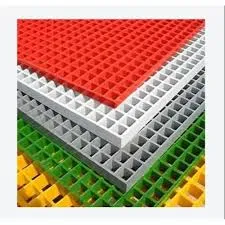loading...
- No. 9, Xingyuan South Street, Dongwaihuan Road, Zaoqiang County, Hengshui, Hebei, China
- admin@zjcomposites.com
- +86 15097380338
- Welcome to visit our website!
Optimizing Water Filtration Systems in Pressure Vessel Applications for Enhanced Performance
Understanding Pressure Vessel Water Filters An Overview
In the field of water treatment, pressure vessel water filters play a crucial role in ensuring the purity and safety of water for various applications, including residential, industrial, and municipal uses. These filters utilize the principles of pressure and filtration to effectively remove contaminants, providing clean water that meets health and safety standards.
What Are Pressure Vessel Water Filters?
Pressure vessel water filters are specially designed units that utilize high-pressure environments to facilitate the filtration process. Typically constructed from durable materials such as stainless steel or reinforced fiberglass, these vessels are built to withstand high levels of pressure, making them suitable for both small-scale and large-scale water treatment operations.
Inside the pressure vessel, a selection of filtration media—ranging from sand and activated carbon to specialized membranes—works together to trap impurities. When water enters the vessel, it is forced through these media layers, allowing clean water to exit while contaminants remain trapped within the filter media.
How Do Pressure Vessel Water Filters Work?
The functioning of pressure vessel water filters can be summarized in a few key steps
1. Water Entry Water is pumped into the pressure vessel, often at a pressure significantly higher than atmospheric levels. This increased pressure enhances the flow rate and ensures that water effectively traverses through the filtration media.
2. Filtration Process As water flows through the filtration media, several physical and chemical processes occur. Larger particles are physically trapped by the media, while smaller contaminants may be adsorbed onto the media surfaces or undergo chemical reactions.
3. Clean Water Collection The filtered water then exits the pressure vessel, usually through an outlet at the top or side of the unit. The clean water may be directed to various points of use or further treatment processes, depending on the system design.
4. Maintenance and Backwashing Over time, pressure vessel water filters accumulate contaminants, which can lead to a decrease in flow rate and filtration efficiency. Regular maintenance, including backwashing, is essential to restore the filter’s function. Backwashing involves reversing the flow of water to dislodge trapped particles, effectively cleaning the media and allowing for continued performance.
pressure vessel water filter

Applications of Pressure Vessel Water Filters
Pressure vessel water filters are employed in numerous applications, including
- Industrial Water Treatment Industries such as manufacturing, food processing, and pharmaceuticals require high-purity water. Pressure vessel filters help meet stringent quality requirements by removing sediment, chlorine, and other impurities.
- Municipal Water Systems Many cities and towns utilize pressure vessel water filters to treat drinking water and wastewater. These systems ensure compliance with environmental regulations and protect public health.
- Residential Filtration Systems Homeowners looking to improve their water quality often invest in pressure vessel filters as part of whole-house systems or point-of-use solutions.
Benefits of Pressure Vessel Water Filters
The advantages of using pressure vessel water filters are numerous. Firstly, they offer a high filtration capacity, allowing large volumes of water to be treated efficiently. Secondly, the use of high pressure enhances the efficacy of the filtration process, which can result in better contaminant removal.
Additionally, the robust construction of these vessels ensures longevity and durability, providing a cost-effective solution in the long run. Furthermore, pressure vessel filters are versatile and can be integrated with other treatment solutions, such as reverse osmosis or ultraviolet disinfection, to create comprehensive water treatment systems.
Conclusion
In conclusion, pressure vessel water filters are an integral component of modern water treatment, serving a diverse range of industries and applications. Their ability to effectively eliminate contaminants while maintaining high flow rates makes them indispensable for ensuring the safety and quality of water. As water scarcity and quality concerns continue to rise globally, the significance of advanced filtration technologies like pressure vessel water filters will only increase, paving the way for a sustainable and safe water future.
-
The Rise of FRP Profiles: Strong, Lightweight, and Built to LastNewsJul.14,2025
-
SMC Panel Tanks: A Modern Water Storage Solution for All EnvironmentsNewsJul.14,2025
-
GRP Grating: A Modern Solution for Safe and Durable Access SystemsNewsJul.14,2025
-
Galvanized Steel Water Tanks: Durable, Reliable, and Ready for UseNewsJul.14,2025
-
FRP Mini Mesh Grating: The Safer, Smarter Flooring SolutionNewsJul.14,2025
-
Exploring FRP Vessels: Durable Solutions for Modern Fluid HandlingNewsJul.14,2025
-
GRP Structures: The Future of Lightweight, High-Performance EngineeringNewsJun.20,2025
